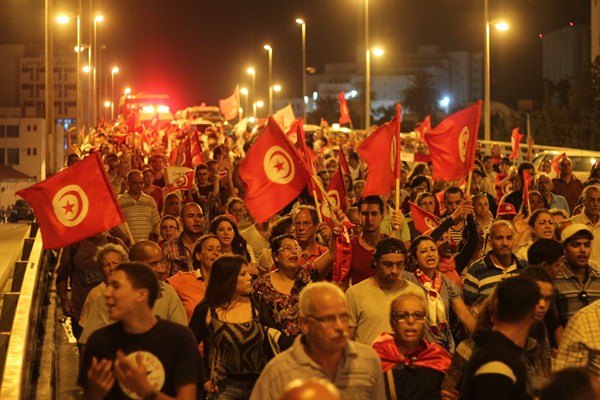Last week, five Tunisian civil society associations submitted a report to the United Nations, decrying systemic attacks on members of Tunisia’s lesbian, gay, bisexual and transgender community. Despite progress in some areas since the popular overthrow of Zine el-Abidine Ben Ali in 2011, many say that discrimination against the LGBT community has worsened over the past five years.
In May 2015, the Tunisian government authorized the country’s first official LGBT advocacy organization, Shams, making it the only country in the region to legalize such an association. But a smear campaign ensued, propelled by some conservative politicians and religious figures. Abdellatif Mekki, a prominent parliamentarian and former health minister, called for the group to be disbanded, arguing that Tunisians “had a revolution for freedom . . . not to found an association to defend gays.” He added that homosexuals are “dangerous for society” and should be punished. Hedi Sahly, Shams’ vice president, received nearly 200 death threats each day, prompting him to flee the country out of fear for his safety.
In January, authorities suspended Shams for 30 days under murky charges that were contested by the organization and a number of human rights groups. Shams appealed the decision and resumed activities in February. But the suspension highlights the legal vulnerability of Tunisia’s LGBT community under the country’s penal code. Last December, for instance, six teenage students were given three-year prison sentences under Article 230 of the penal code, which criminalizes sodomy and homosexual acts. The defendants were also banished from their hometown of Kairouan.

